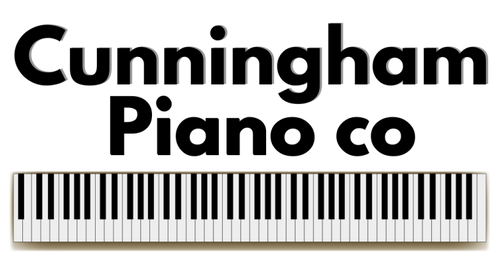Discover Yamaha's Grand, Upright, & Hybrid pianos: unique designs & sounds. Learn their features & find your perfect Yamaha at Cunningham Piano Company, Delaware Valley.

When it comes to pianos, Yamaha stands out as a brand synonymous with superior quality, craftsmanship, and innovation. From concert stages to living rooms, Yamaha pianos have found their place in the hearts of many. One of the primary decisions for potential buyers revolves around the type of piano: Grand, Upright, or Hybrid. But what makes each unique? In this article, we will dive deep into the defining characteristics of each, and what sets them apart.
1. Grand Pianos: Elegance Meets Acoustical Brilliance

Shape and Size: Grand pianos are easily distinguishable by their horizontal design. They range in size, from petite models to concert grands, which are used in major performance venues.
Sound Quality: The horizontal soundboard of a grand piano allows for longer strings, offering richer and more resonant sound. The lid can be propped open, directing the sound into the room, which is ideal for performances.
Action Mechanism: Grand pianos have a more responsive action due to the horizontal orientation of their hammers. This gives players better control over dynamics and expression.
2. Upright Pianos: Compact Design with Compelling Sound

Shape and Size: Upright pianos, as the name suggests, stand vertically. They are compact and designed to fit into smaller spaces, making them a popular choice for homes and schools.
Sound Quality: While the sound might not be as expansive as a grand piano due to the string length and soundboard orientation, modern uprights, especially those by Yamaha, deliver impressive sound quality.
Action Mechanism: The vertical orientation means the action operates differently, with hammers moving sideways rather than dropping down by gravity. However, Yamaha's expert design ensures that their uprights still offer remarkable touch and responsiveness.
3. Hybrid Pianos: Blending Tradition with Technology

What is a Hybrid?: Hybrid pianos bridge the gap between acoustic and digital. They employ traditional acoustic piano action but produce sound digitally, without strings. This provides the feel of an acoustic piano with the benefits of digital technology.
Sound Quality: Hybrid pianos use high-quality digital samples, often from top-tier grand pianos. This ensures an authentic sound while also offering options to change tone, add effects, or even use headphones for silent practice.
Versatility: The most significant advantage of hybrid pianos lies in their versatility. They require minimal maintenance compared to acoustic pianos, can be integrated with various digital tools, and are perfect for those who desire the tactile experience of an acoustic piano combined with modern capabilities.
Where Can You Find Yamaha Pianos in the Delaware Valley?
If you're located in the Delaware Valley and are considering a Yamaha piano, look no further than Cunningham Piano Company. They are the exclusive Yamaha dealer in the region, ensuring you get the genuine product, expert guidance, and unparalleled service.
Final Thoughts
Yamaha's range of grand, upright, and hybrid pianos caters to the diverse needs of pianists worldwide. Whether you're an aspiring beginner, an advanced player, or someone who enjoys the blend of tradition and technology, Yamaha has a piano tailored for you. Your journey towards finding the perfect piano might just begin at Cunningham Piano Company, where expertise meets passion.
So, visit today, and let the music begin!

